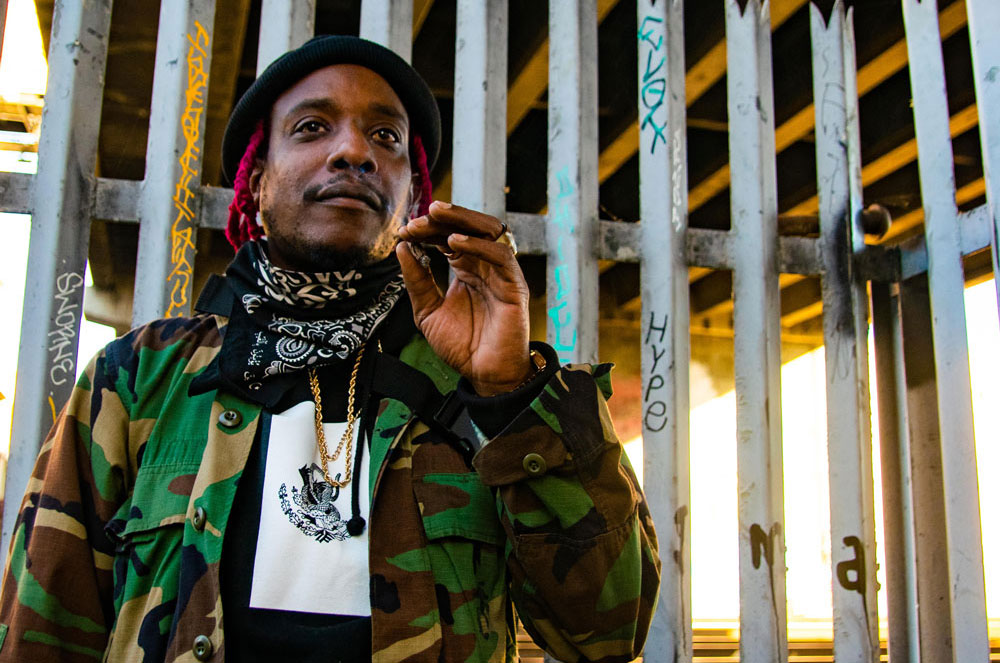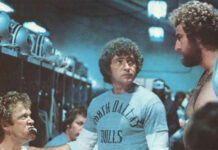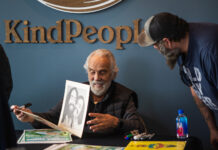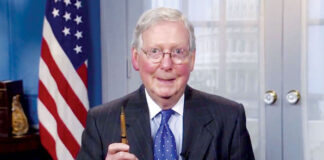Chris Riggins on how drug culture and commerce are meeting on the comedy scene
As cannabis growers and stores flourish across parts of the country, manufacturers and distributors are scrambling to brand themselves—to let consumers know that they identify with an ever-growing, diverse subculture. Take, for example, local growers Coastal Sun Farm, who reverentially dig deep into the process of organic growing and cultivation. In the search for a spokesperson and influential community member who embodied their vision, they tapped Bay Area comedian Chris Riggins.
A five-foot-four force of nature, rapper-turned-comedian Chris Riggins commands the stage with an intensity and compassion rarely seen. And he’s now using his platform and popularity to spread the word about his love of cannabis. Over several months of quarantine, Riggins would post daily smoke sessions live on Instagram, which would find him chanting, meditating, rollerblading and giving deep thoughts to his viewers. Inspirational, engaging and coming from the heart, Riggins is surfing the cannabis industry’s green wave. I spoke to him recently about his career and the intersection between cannabis culture and commerce.
You started as a street rapper, and then joined Berkeley legends Mingus Amungus. Was weed culture part of being in the band?
CHRIS RIGGINS: Weed and music has gone together for a long time. They used to smoke “jazz cigarettes” 100 years ago. I’ve been smoking weed since I was 14. Next thing I know, I’m 16 and smoking weed with these 29, 30-year-olds and meeting people who grow weed and getting immersed in the culture. And growing up in the Bay Area, weed is everywhere.
How did you transition into comedy?
I stopped rapping and started managing rappers. A friend of mine challenged me to open up for Dave Chappelle at the New Parish. I thought I was funny, but I didn’t think I was stage funny. I did it, and boom! I was a comedian.
Weed and entertainment have been linked for a long time, but Coastal Sun Farm’s decision to work with a local comedian seems pretty innovative. How did it happen?
We kind of solicited each other. I would always stop by Farms and post it on my Instagram just to say, “Hey, I really like your product.” I like to build relationships. I ended up hosting a 420 event in San Francisco that they were sponsors of and ended up meeting face to face. We started talking about their plans for the future and what they were doing. One thing we discussed was how we can’t sell cannabis online. But what we can sell is the lifestyle. So the mindset is Black and brown people should be in the forefront. We have suffered so much from the War on Drugs, which is really just a War on Black and Brown People. It’s important to Coastal Sun Farm that the faces they use for promotion represent all the people that use their product.
What’s your mission as a weed spokesperson?
I want to normalize weed smoking. The current environment is weed is legal in certain aspects, and still illegal in many aspects. But the taboo of weed is still there. The misinformation is still out there.
Where do you see the negative stereotypes of cannabis?
On the counterculture side, it’s definitely more popular than ever. In the mainstream culture and in the workforce, people are still scared to admit they smoke weed. Even though your job doesn’t care if you get drunk every night, they will still punish you or fire you if you get caught smoking weed, even off-hours. Look at Sha’Carri Richardson or Michael Phelps; even high-functioning adults can get cancelled for smoking weed by the entire Olympic community, even though it’s helping them deal with very real issues like anxiety or grieving or depression or whatever. Fact is, people go home after work and have a beer, and some people go home and smoke a joint after work. You know at barbecues somebody is passing a joint around, so why can’t it be seen in the same light as alcohol? Especially since it has healing qualities as opposed to harming qualities.
You’re very outspoken about racial inequality in comedy and cannabis. For instance, you’ve lobbied for more Black comics on Bay Area comedy shows. Has anything changed?
Every comedian has a different struggle. Black female comics often do not have a voice in the Bay Area scene. But even across the country, you see the same issue. There seems to always be white gatekeepers that determine who gets on shows. And those people book who feeds their tastes, or needs or demographics. Diversity on shows is often tokenism. White promoters don’t book because somebody is funny; they book because, “Oh, we need a black gay lesbian on our show. Let’s find one.” In the Bay Area, Black comedians and other comedians of color often have to book their own shows. Even if you are a promoter in a demographic that is mostly white, you shouldn’t have to be told to create diverse line-ups. You should be seeking out the widest range of comics available to you, so your audience can see a real slice of life. Show your audiences perspectives that don’t match your own. It happens all the time in San Francisco, where the comedy shows are echo chambers—white male comics talking about white male problems to white male audiences. Nothing new is heard.
Do you think cannabis companies should reach out to more comedians?
Companies that make an effort to give themselves a multicultural face will thrive, because at the end of the day, if you look across the lines of humanity, people from all cultures, races and sexualities and genders smoke weed.
Coastal Sun Farm, located in Watsonville, is certified organic and specializes in blueberries and cannabis. Visit coastalsunfarm.com. Chris Riggins performs throughout the country; follow him on IG @chrisrigginscomedy.








